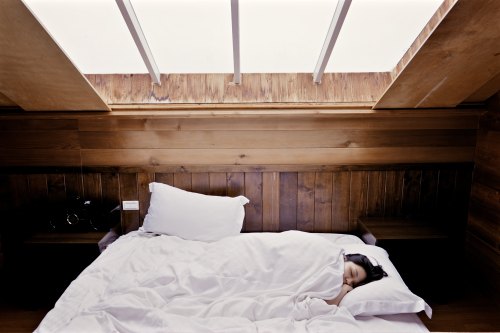There are a lot of crazy things that happen to your body postpartum and most of them, for some reason, no one wants to talk about. They happen to everyone and someone out there should educate women about their own bodies. Postpartum night sweats are a common occurrence for thousands of women. You wake up and suddenly find yourself soaked in sweat for no apparent reason. Why do people not warn you that this could happen to you?

WHY DOES THIS OCCUR?
Normal night sweating can happen when you are wrapped up too much or your room gets too hot. Postpartum night sweats occur for a different reason and it is a perfectly normal symptom of post-pregnancy. Due to hormone fluctuation (yes, hormones are to blame for yet another postpartum issue) and excess body fluid from lactation, your wonderful body just finds a way to rid itself of what it simply doesn’t need.
You may notice yourself urinating more frequently; though who could tell after spending half of the last nine months in the bathroom anyway. This is also your body’s way of getting rid of all of that extra fluid previously needed to maintain a healthy pregnancy and delivery. Your body will also be producing tons of extra fluid if you are breastfeeding.
If you experience night sweats with other symptoms present, such as fever or chills, call your doctor because these can be signs of a serious infection.
WHAT TO EXPECT
Due to your body’s crazy hormonal ups and downs, these night sweats can occur nightly or sporadically. They will usually last for several weeks after you give birth. They should stop as your body returns to normal.
While there is no treatment, there are some things you can do to help alleviate your symptoms:
- Keep your room cool.
- Drink plenty of fluids. With all of that sweating, you can become dehydrated easily.
- Sleep on a towel and keep a pile of them near to change if you need to.
- There are great waterproof mattress covers that you just lay under you, too.
- If your skin gets irritated from all of that moisture, you can consider using powder to ease the chafing and irritation.
WHEN TO BE CONCERNED
One study showed that women who experienced postpartum night sweats and hot flashes were more likely to become depressed. Breastfeeding raises the risk, even more, due to the tremendous hormone fluctuations. If you experience any of these symptoms, talk to someone and tell your doctor. There is help and you don’t need to face it alone.
Don’t worry about the night sweats but if you experience other symptoms such as fever over 100.4 º, foul-smelling vaginal discharge, large clots or bright red bleeding for more than three days after delivery, infected looking stitches, severe cramps, or red, swollen breasts, call your doctor. These can be signs of serious complications.
Also if you feel depressed, or just anxious, talk to someone you trust and keep your six-week checkup and discuss any concerns with your doctor.
Dealing with night sweats may not be pleasant, but you can take heart in knowing that your body is doing exactly what it is supposed to be doing. Isn’t that a wonder!